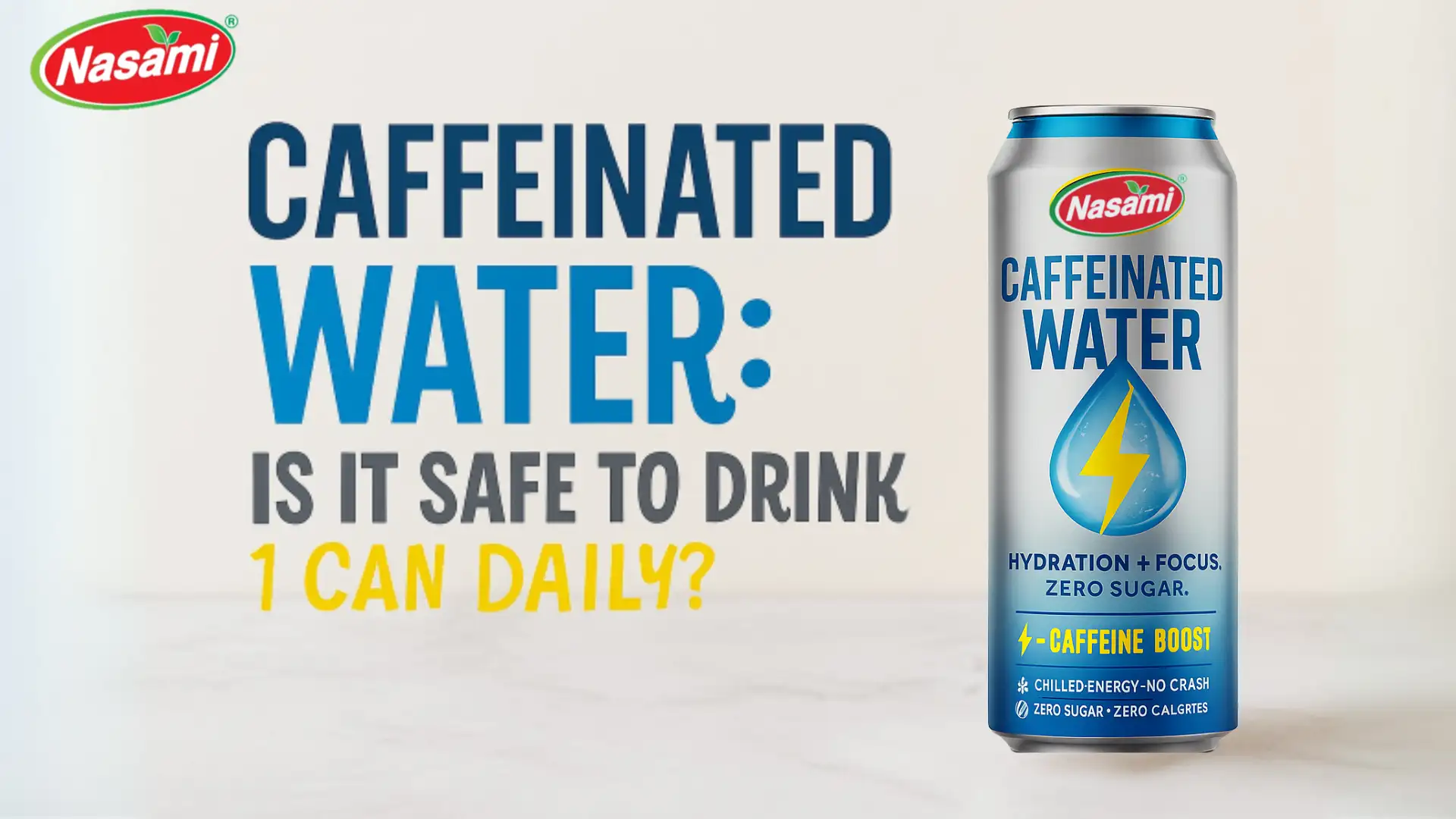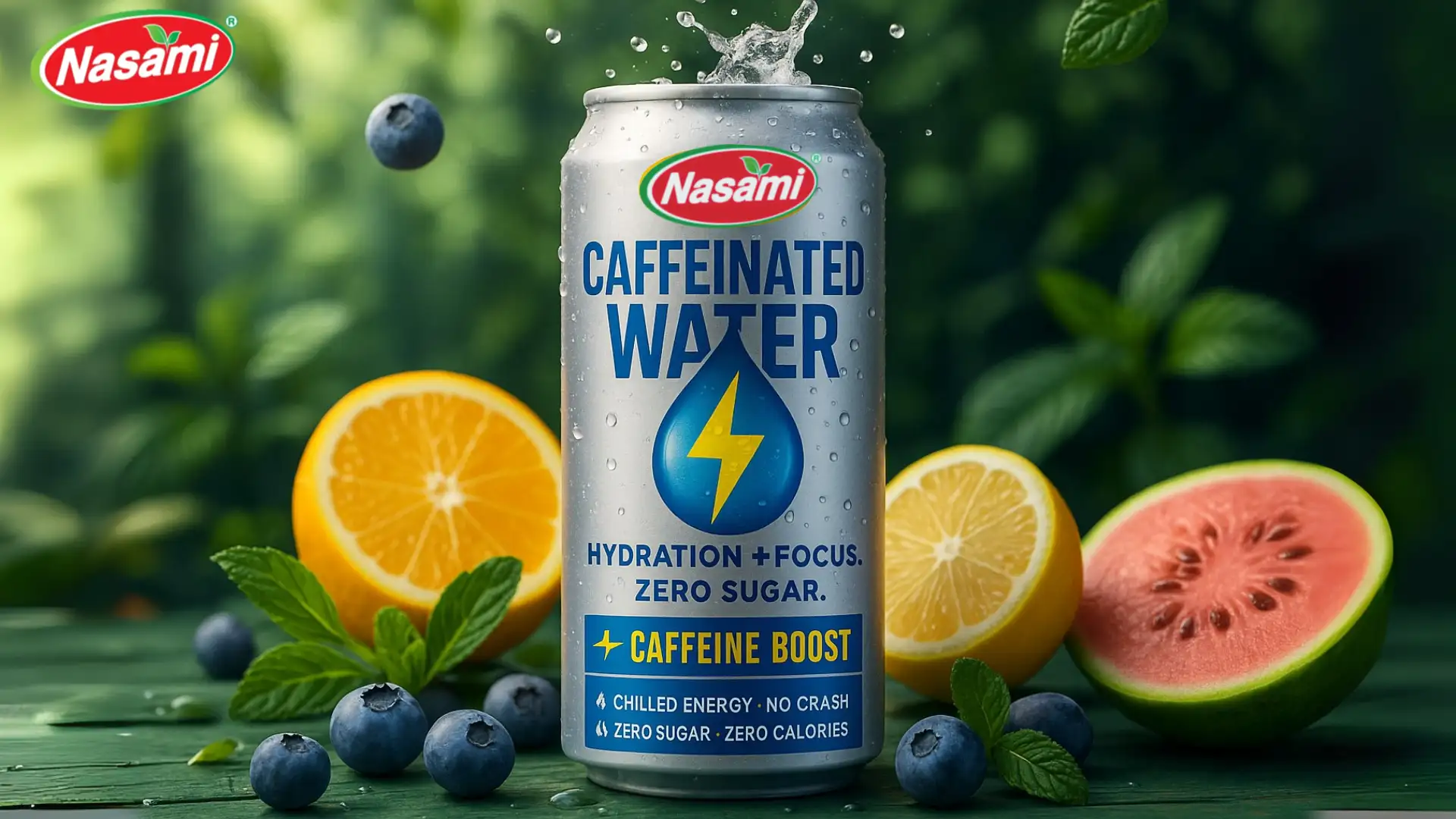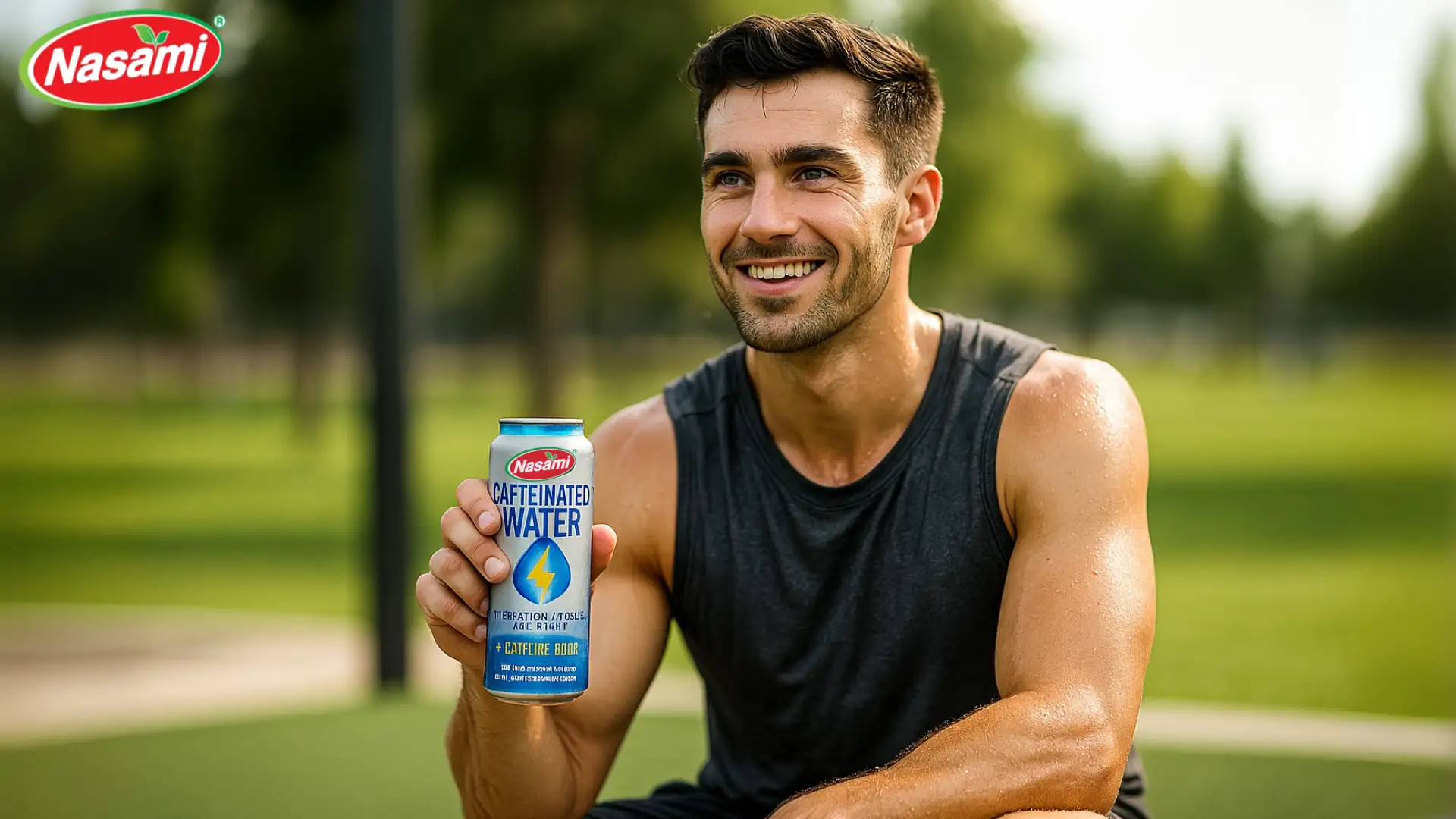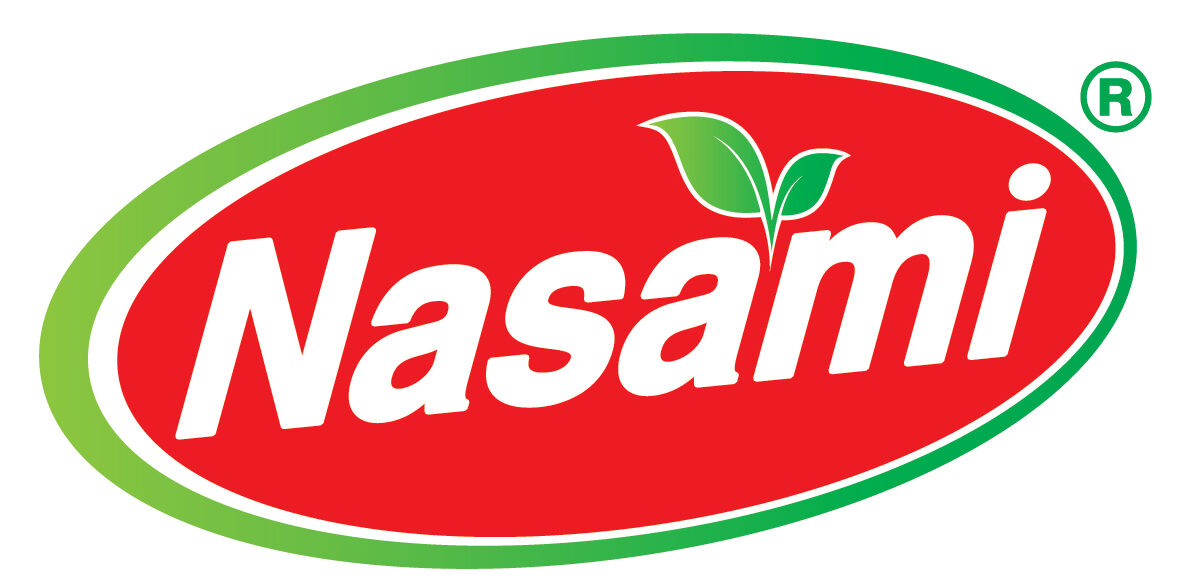The Rise of Caffeinated Water
In today’s fast-paced world, people are constantly seeking ways to stay alert and energized—without relying on sugary sodas or heavy coffee. Enter caffeinated water: a clear, refreshing beverage infused with caffeine but often zero-calorie, zero-sugar, and clean-label.
Table of Content
ToggleWhile it sounds like the best of both worlds, many health-conscious consumers are now asking:
Is it safe to drink one can of caffeinated water every day?
This article explores the science, benefits, risks, and expert opinions behind the daily use of caffeinated water.

What Is Caffeinated Water?
Caffeinated water is simply water infused with caffeine, often marketed as a healthy alternative to energy drinks or coffee. Most products contain between 30 to 125 mg of caffeine per can or bottle, with no added sugar, artificial flavors, or calories.
Popular brands include:
Hint Energy
Water Joe
Nasami Spark+
Phocus
HiBall Sparkling Energy Water
It’s often positioned as a clean energy source for gym-goers, office workers, and anyone looking for a midday boost without the crash.
How Much Caffeine Is in 1 Can?
Caffeine content varies, but here’s a general idea:
| Brand | Caffeine per Can | Calories | Sugar |
|---|---|---|---|
| Water Joe | 70 mg | 0 | 0 g |
| Nasami Spark+ | 90 mg | 0 | 0 g |
| Phocus | 75 mg | 0 | 0 g |
| HiBall | 120 mg | 0 | 0 g |
For comparison:
A standard cup of coffee has ~95 mg of caffeine.
A can of Red Bull has ~80 mg (plus sugar).
So drinking 1 can of caffeinated water per day is roughly equivalent to drinking 1 cup of black coffee — but without sugar or cream.
Benefits of Drinking Caffeinated Water Daily
Clean Energy Without the Crash
Caffeinated water provides a steady caffeine boost without the sugar rush and crash of energy drinks or soda.
Zero Calories & Sugar-Free
It’s ideal for people managing weight or blood sugar levels, especially those avoiding sweetened beverages.
Hydration + Focus
You get the benefits of hydration with added mental alertness—perfect for studying, working, or workouts.
Gentle on the Stomach
Unlike coffee, caffeinated water is less acidic, making it easier to digest, especially for people with acid reflux.
Risks of Drinking Caffeinated Water Every Day
Overconsumption of Caffeine
Drinking one can a day is usually safe, but be mindful of your total daily caffeine intake. Too much caffeine can cause:
Insomnia
Anxiety
Rapid heart rate
Headaches or jitteriness
Safe limit for most adults: up to 400 mg per day (per FDA).
So, one can per day (~70–125 mg) is well below this threshold—unless you’re also consuming coffee, energy drinks, tea, or pre-workouts.
Caffeine Sensitivity
Some individuals may be more sensitive, experiencing:
Palpitations
Sleep disruption (especially if consumed after 3 PM)
Nervousness or irritability
→ If you notice side effects, lower your dosage or switch to decaf options.
Not Suitable for Everyone
Avoid or limit caffeinated water if you are:
Pregnant or breastfeeding
Under 15 years old
Suffering from high blood pressure or heart issues
Sensitive to stimulants
Always consult your doctor if unsure.

Who Should Consider Drinking 1 Can a Day?
Good Fit For
Office workers avoiding sugary drinks
Fitness enthusiasts needing pre-workout hydration
Students seeking clean focus during exams
People transitioning off soda or coffee
Not Ideal For
Children and teens
People with insomnia or anxiety
Caffeine-sensitive individuals
Anyone already consuming high-caffeine supplements
Best Practices: How to Drink Caffeinated Water Safely
To enjoy the benefits without the risks, follow these simple guidelines:
Stick to 1 Can Per Day
One can (under 125 mg caffeine) is generally safe for most healthy adults.
Drink Earlier in the Day
Consume before 3 PM to avoid disrupting sleep.
Read the Label
Some products may have hidden sweeteners, preservatives, or more caffeine than expected.
Hydrate with Plain Water Too
Don’t replace all your water with caffeinated water—balance is key.
Consumer Reviews: What People Are Saying
“I drink one Phocus a day at work instead of coffee. It keeps me focused without the jitters.” — Taylor, 29
“Nasami Spark+ gives me energy during workouts without upsetting my stomach like coffee does.” — Minh, 33
“Tried caffeinated water instead of soda—zero calories and still keeps me awake. Total win.” — Jake, 41
Expert Opinion
According to Dr. Natalie Watson, a clinical nutritionist:
“For healthy adults, moderate caffeine intake from beverages like caffeinated water is perfectly fine. In fact, the hydration benefit makes it a better alternative to coffee or soda in many cases. Just monitor your total caffeine consumption.”
Caffeinated Water vs. Coffee: Which Is Better?
| Factor | Caffeinated Water | Coffee |
|---|---|---|
| Calories | 0 | 2–100+ (depends on milk/sugar) |
| Acidity | Low | High |
| Sugar | None | Often added |
| Hydration | High | Moderate (diuretic) |
| Taste | Neutral | Bitter or rich |
| Portability | Easy (bottled/canned) | Less convenient |
✅ Verdict: Caffeinated water is better for hydration, zero-calorie goals, and sensitive stomachs.
☕ Coffee still wins for flavor lovers and morning routines.
Nasami Spark+ – A Trusted Choice for Clean Energy
Looking for a certified caffeinated water brand? Try Nasami Spark+:
💧 Infused with 90mg of natural caffeine
🧪 Zero calories, zero sugar, no preservatives
✅ Certified by ISO, HACCP, FSSC, FDA,…
🌍 Exported globally in PET bottles & cans
Perfect for distributors, private label customers, and health-focused retailers.
📩 Contact Nasami for product catalogs or samples today.

Is 1 Can of Caffeinated Water a Day Safe?
Yes — for most healthy adults, one can per day is safe.
It can provide clean energy, support hydration, and replace sugary drinks without major side effects.
👉 Just be mindful of your total caffeine intake, your personal sensitivity, and the time of day you consume it.
As with all things—moderation is key. One can a day? Go for it. Just don’t chase it with three cups of coffee.
View more:
- Best Healthy Juice Not from Concentrate – 5 Proven OEM Benefits for Distributors
- Healthiest Orange Juice 2022: 7 Surprising Hits Still Leadin
- Natural Caffeine RTD: 5 Must-Try Boosters This Year
- Good Smoothies Near Me? 6 Irresistible Beverage Hits
- 5 Powerful Benefits Make Cranberry Juice Good for You Daily
